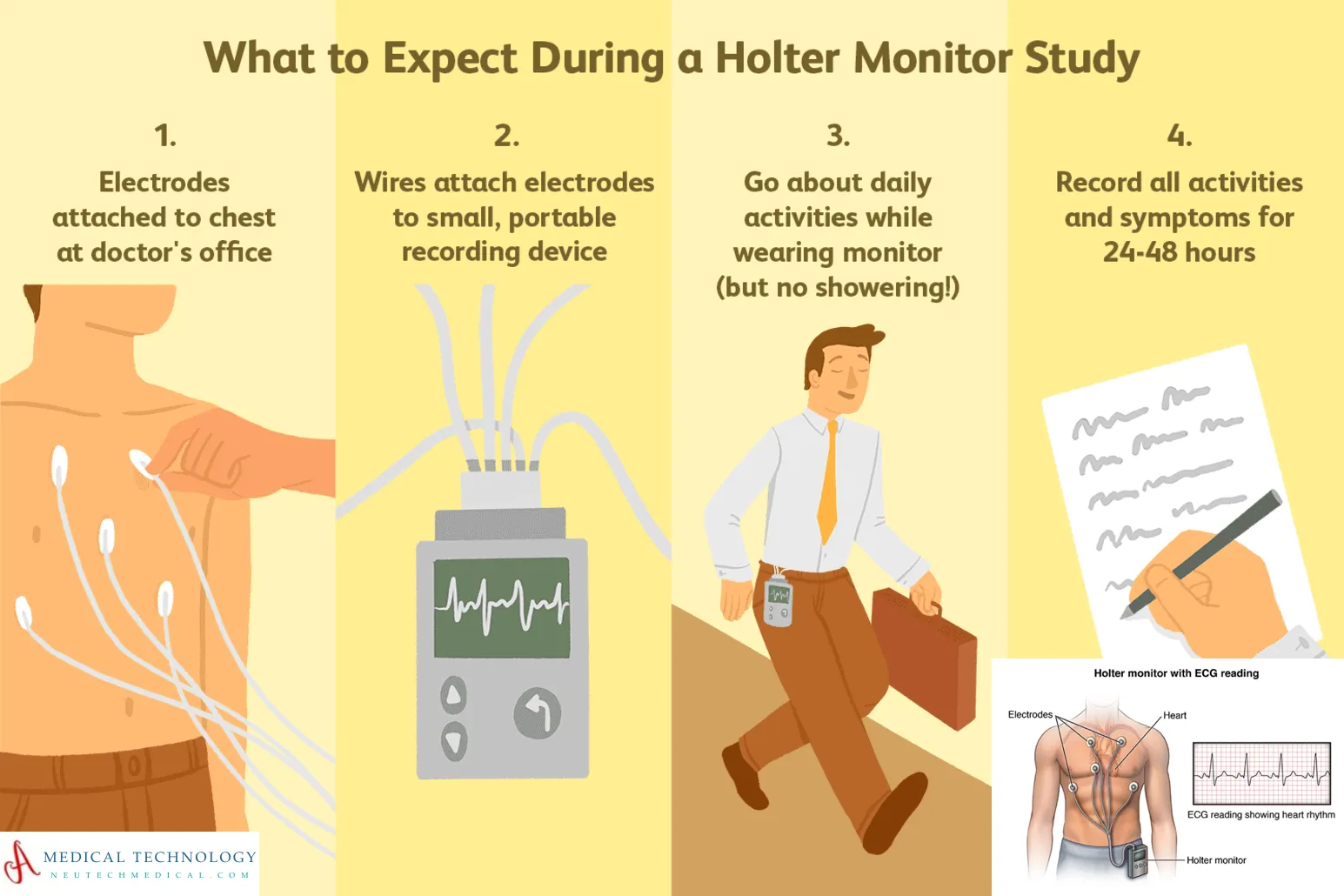
48 Hour Holter Monitor
A 48 hour Holter monitor is an essential tool for cardiac health monitoring since it provides information on heart activity and rhythm that is not available from short-term testing. This article explores the nuances of this monitoring tool, its importance, and the procedure for using it.
Introduction to 48 Hour Holter Monitor
Imagine having a continuous observer meticulously tracking your heart’s rhythm and activity for 48 hours straight. That’s precisely what a 48-hour Holter monitor does. It’s a wearable device designed to record your heart’s electrical activity over an extended period, offering a comprehensive view of its behavior outside the controlled environment of a medical facility.
Article About:- Health & fitness
Article About:- Medical Technology
Article About:- Sports

How Does a 48 Hour Holter Monitor Work?
Unlike conventional electrocardiograms (ECGs) that provide a brief snapshot of heart activity, a 48-hour Holter monitor offers continuous monitoring. The device is typically small, compact, and easily wearable, usually strapped around the chest or waist. Throughout the monitoring period, it records every heartbeat, allowing healthcare professionals to analyze the data thoroughly.
Indications for Using a 48 Hour Holter Monitor
Healthcare providers may recommend a 48-hour Holter monitor for various reasons. It’s commonly employed to detect irregular heart rhythms (arrhythmias) and assess symptoms like palpitations, dizziness, or fainting spells that may suggest underlying cardiac issues.
Preparation for a 48 Hour Holter Monitor Test
Before undergoing a 48-hour Holter monitor test, patients typically schedule an appointment with their healthcare provider. They receive instructions regarding clothing choices and activities to ensure optimal monitoring conditions.
The Process of Wearing a 48 Hour Holter Monitor
Applying a 48-hour Holter monitor is a relatively simple procedure. The device is attached to the patient’s chest or waist using adhesive electrodes. Throughout the monitoring period, patients are encouraged to maintain a diary, noting any symptoms experienced and daily activities undertaken.

Interpreting Results from a 48 Hour Holter Monitor
Once the monitoring period concludes, healthcare professionals analyze the recorded data to identify any irregularities or abnormalities in heart rhythm patterns. This analysis plays a crucial role in diagnosing underlying cardiac conditions and guiding subsequent treatment plans.
Advantages and Limitations of a 48 Hour Holter Monitor
One of the primary advantages of a 48-hour Holter monitor is its non-invasive nature, allowing for continuous monitoring without disrupting daily activities. However, challenges such as skin irritation from electrode adhesives and the need for meticulous diary-keeping may pose limitations to some individuals.
48 Hour Holter Monitor Summery
Within the field of heart health monitoring, the 48-hour Holter monitor is a useful instrument that provides information that goes beyond the fleeting observations obtained from conventional testing. It is essential for the diagnosis and treatment of a number of heart disorders because to its continuous, non-invasive monitoring capabilities.

FAQs
Is wearing a 48 hour Holter monitor uncomfortable?
While some individuals may experience minor discomfort due to the adhesive electrodes, most find the device relatively unobtrusive.
Can I shower or bathe while wearing a 48 hour Holter monitor?
Yes, most 48-hour Holter monitors are waterproof, allowing patients to shower or bathe as usual during the monitoring period.
How soon can I expect to receive results from a 48 hour Holter monitor test?
Results are typically available within a few days after completing the monitoring period, depending on the healthcare provider’s protocols.
Are there any restrictions on physical activities while wearing a 48 hour Holter monitor?
Patients are generally advised to maintain their usual daily activities while wearing the monitor to provide an accurate representation of their heart’s behavior.
Can a 48 hour Holter monitor detect all types of heart conditions?
While it’s effective in detecting many cardiac abnormalities, certain conditions may require additional tests or monitoring methods for accurate diagnosis.




